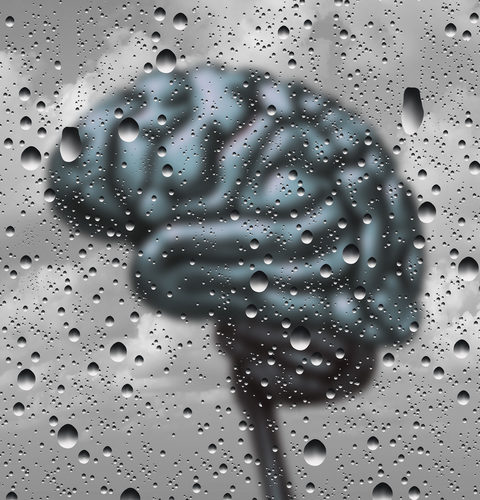Though kratom is still a legal substance in many parts of the U.S., it has recently become controversial. Kratom comes from a South Asian plant called Mitragyna speciosa, a relative of the coffee tree. The leaves of Mitragyna can be chewed whole, or powdered and mixed into beverages or taken orally. Kratom has been used among indigenous Southeast Asian peoples for generations as a medicinal herb, and some users argue that its health benefits — pain and anxiety relief, lowered blood pressure and digestive aid — are well-documented enough to justify its legality. However, kratom is also known to have opioid-like intoxicating effects when taken recreationally, and it has been linked to several deaths that were possibly caused by a combination of kratom and other drugs. As with any mind-altering substance, the effects kratom has on brain chemistry can be harmful and addictive when the drug is repeatedly misused over time.
Kratom is widely available over the internet and in many places where tobacco products are available. The ease of access combined with its potential for addiction and misuse are red flags for this drug, so even though it is not federally classified as a controlled substance, it should still be handled and used with caution.
EFFECTS OF KRATOM ADDICTION ON THE BRAIN AND BODY
Kratom has different effects in different doses. Smaller amounts of kratom have stimulating effects, often making the user more alert, talkative and energetic. In larger doses, its effects mimic those of opioids like morphine or hydrocodone; some users combine kratom with cough syrups containing codeine (a blend popularly called “4×100”) to heighten this type of high. Like opioids, the psychoactive substance in kratom works in sections of your brain that control pain, mood and emotional responses. Unlike opioid drugs, however, kratom does not contain a different version of your brain’s own opioid chemicals. Instead, a new chemical called mitragynine begins to take control of pain, pleasure and anxiety pathways. Researchers believe that this is the reason the drug produces different highs at different doses — some stimulation of your opioid receptors results in more energy and clarity, while overstimulation leads to drowsiness, uncoordinated movements and heightened emotions.
There is little research about the physical effects of kratom since it has only recently begun to appear on the U.S. drug scene. Currently, health experts warn against kratom abuse because its opioid-like effects can lead to dangerously slowed breathing and heart rate, and because when it is combined with other psychoactive substances — even prescription medications — it has the potential to be lethal.


TREATING KRATOM ADDICTION
Many of those arguing for kratom legality claim that it is not an addictive drug. However, any substance that alters brain chemistry has the potential to be addicting. Repeated use or abuse of kratom can cause you to crave and depend on the drug, and treating these cravings requires detox and long-term management tactics. Kratom is also commonly used in conjunction with other drugs, a situation known as co-occurring addictions which can complicate recovery. If you or your loved one is struggling with a co-occurring addiction, you should seek treatment at a facility that can guide you through the detox and recovery process for both substances — the physical effects of detoxing from multiple substances should be monitored to avoid complications.
The Springboard Center in Midland, TX offers medically-assisted detox programs and treatment plans geared towards those with co-occurring addictions. Our experienced and caring staff are available to help you recover from your addiction both physically and mentally; after your detox, you can transition seamlessly into a mental health counseling routine that works with your schedule and lifestyle. Our treatment services include:
- Group and individual therapy
- Residential treatment
- Intensive outpatient treatment
- Family counseling
We believe that before you are our client, you are a person. You have individual needs and that your experience with addiction differs from others who seek recovery with us. We aim to help you create a pathway to a sober life that makes sense for you through tailored mental and physical health programs.
CONTACT THE SPRINGBOARD CENTER
Springboard is proud to be the premier addiction treatment center for the Permian Basin region of Texas, New Mexico and Oklahoma. We treat men and women over the age of 18 for addiction to drugs and alcohol, and we can offer medically-assisted detox at our facility and in partnership with local healthcare centers. If you or your loved one is struggling with addiction, contact us to find out if our programs are right for you. Call us today at our office in Midland, TX 432-620-0255 to learn more about the resources available to you during your recovery.

